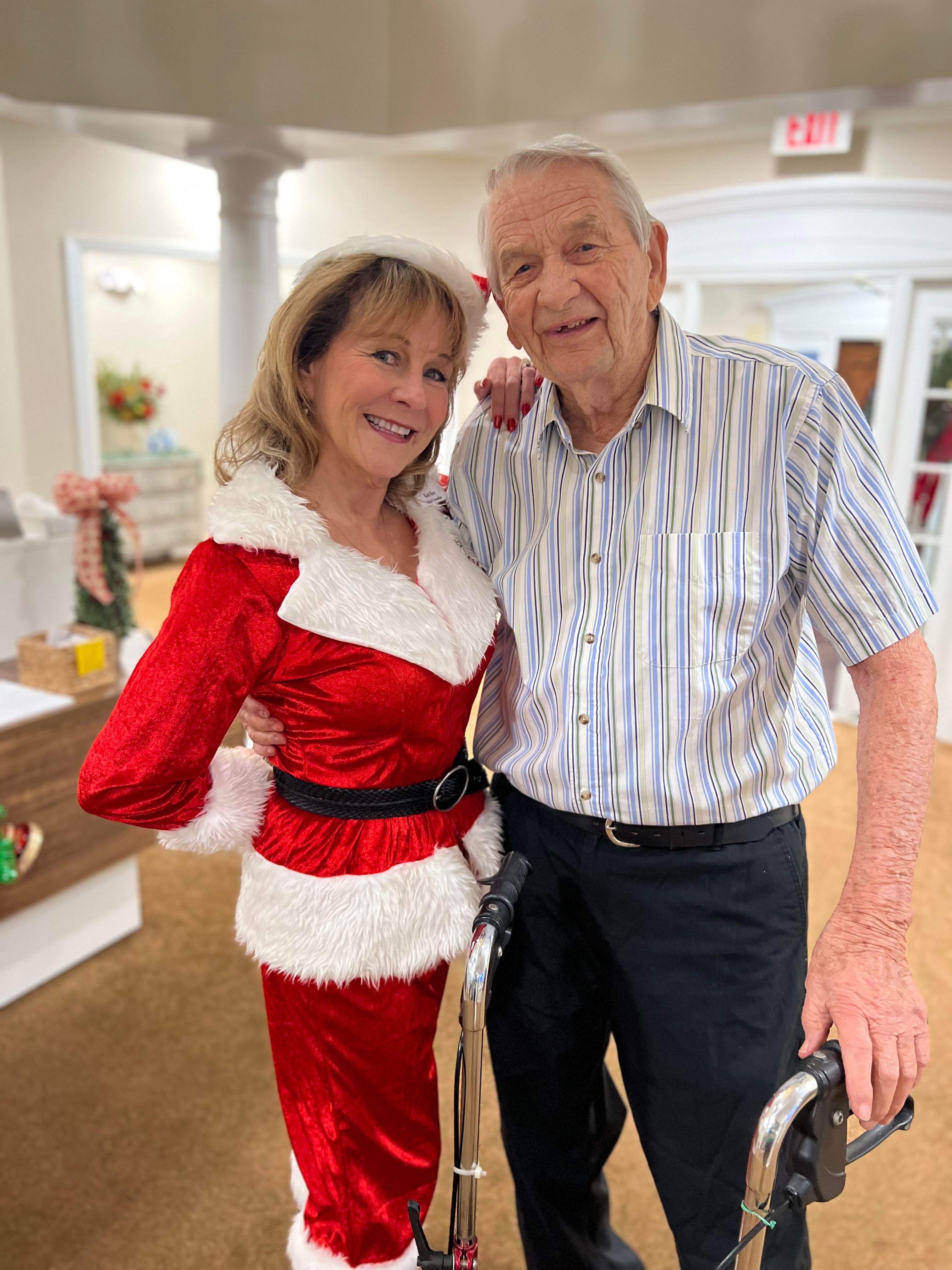More than 60% of Americans age 65 or older live with a spouse or partner. However, almost 70% of men and women just now turning 65 will eventually require some type of long-term care. So, it’s no surprise if your parents are getting older and at least one of them now needs some assistance with daily living or dealing with chronic medical or memory challenges.
It’s a difficult reality for parents and adult children alike.
Staying together is as important as it feels
Loving relationships that withstand the test of time create an emotional closeness that helps couples enjoy life and support one another no matter what. Your parents want things to remain comfortably familiar, and every senior wants to remain as independent as possible. That’s easy to understand.
Typically, when one spouse starts to need help, the stronger, healthier one pitches in. Often, adult children step up to help, too. But making the best of it only goes so far.
If one parent is trying to handle the increasing needs of their spouse, that can take a tremendous toll on their own physical and mental health. The same is true for you if you’re trying to manage caregiving while caring for your own family plus personal and work needs.
Finding a less strenuous and less stressful living situation for your parents can benefit all of you in multiple ways. Most importantly for them, it allows them to spend maximum quality time with one another instead of one person relegated to household chores and caregiving.
How you can help -- positively
It can be so frustrating to see your parents suffering under the weight of caregiving but unwilling to contemplate the possibility of becoming separated. It may be more obvious to you than to them that they need professional help, but as long as at least one of them is mentally competent, any decision to change must be theirs. But you can still guide them in the right direction.
The best time to start talking about moving to a new living situation is right now. Waiting till everyone is exhausted physically and emotionally puts even more pressure on finding an alternative, and it can limit your options.
In the near term, in-home care services can help alleviate stress and physical labor associated with caregiving. But there is a significant difference between personal care and assisted living. Nonetheless, many seniors don’t want to even consider moving to a senior community because they (and perhaps you, as a younger adult) still think assisted living is just a modern term for nursing home.
Nothing could be further from the truth. So one of the most helpful and compassionate things you can do for your parents is to help them learn more about their real options when it comes to senior living and care levels. Getting the facts can do wonders to help your parents positively embrace the possibility of moving to a community where they can both be as independent as possible. And it will buoy your own peace of mind as well.
What kinds of assistance do your parents need right now?
That might be assistance with housework or shopping, activities of daily living such as bathing or dressing, managing medications, or coping with dementia. This will point you toward the most appropriate senior living environment.
Your parents’ primary care providers can provide a medical assessment, which is especially important in considering likely additional care needs in the future.
Ask for help
No matter how much research you do, you’ll still have lots of questions. Staff at quality senior communities have the expertise and insight to help answer questions and allay common senior fears about moving.
Look for a community that offers multiple levels of care
This is essential because your parents can live near one another even if not together. For example, one parent could be an independent resident while the other lives in an assisted living apartment or memory care unit. For that matter, assisted living communities typically offer accommodations for couples if that’s an appropriate choice for your parents.
Whatever their initial move-in accommodations, if Mom or Dad needs more or a different type of care, later on, they can make a small move but remain within the same community.
Helping your parents choose the right senior community is the biggest gift you can give them at this point in their lives. With comfortable surroundings and kind, expert care that matches their needs, they can retain what they want most – a chance to stay together.
Is Winnwood Retirement Community the right new home for your Mom and Dad? We’re here to answer your questions, and we’d love to give you and your parents a tour! Don’t hesitate to contact us.




